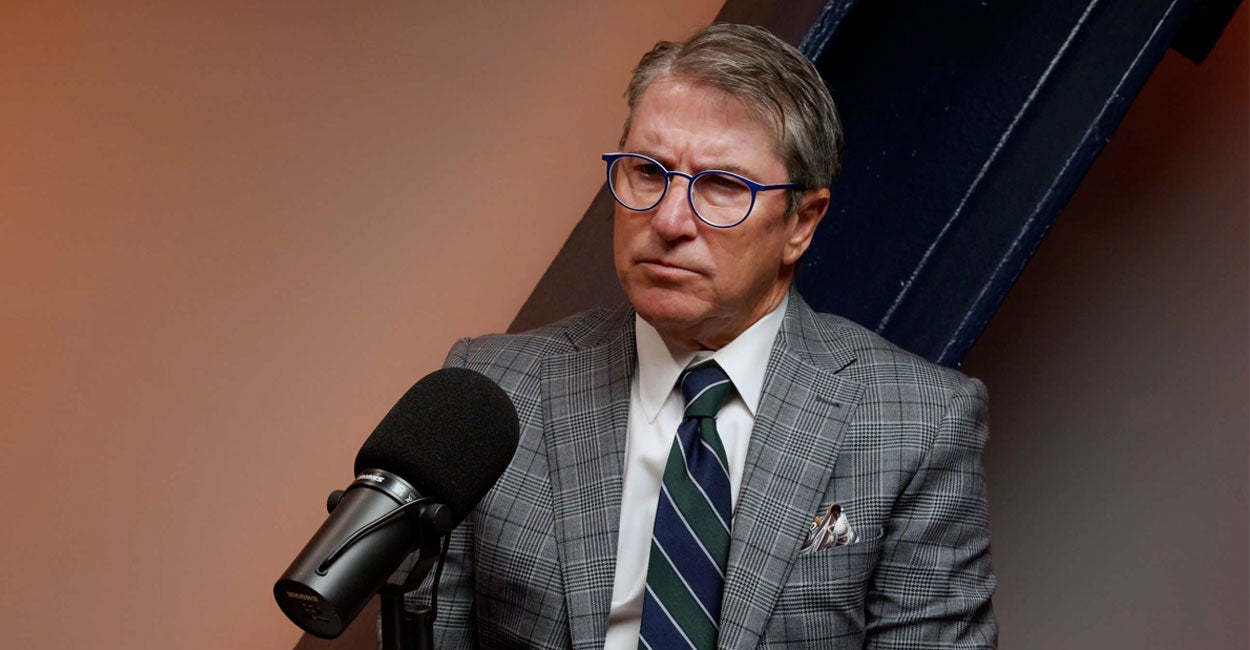


This is a preview of this week’s episode of “The Signal Sitdown.” Don’t miss politics editor Bradley Devlin’s interview with Professor Patrick Deneen by turning on YouTube notifications for the premiere at 6:30 a.m. EST on Sept. 4, 2025.
Notre Dame Professor Patrick Deneen’s book, “Why Liberalism Failed,” was not a project undertaken to explain the Trump phenomenon after President Donald Trump’s surprise victory in the 2016 election. Nevertheless, it quickly entered the panoply of books, with Vice President JD Vance’s “Hillbilly Elegy” among them, that provided insight into a new era of not only American but Western politics.
The book’s success, even featured on former President Barack Obama’s list of recommended books, catapulted Deneen to one of the most prominent academic figures in the West and his ideas to the forefront of America’s most contentious political debates.
Much has happened in the years since “Why Liberalism Failed” was published. Liberalism managed to claw back power, first through undermining Trump’s agenda at almost every turn from within, and then through the empty vessel of former President Joe Biden. Yet, Trump was able to mount a surprising return in 2024 with a new resolve to dismantle the forces of liberalism concentrated in Washington, D.C. Deneen joined “The Signal Sitdown” this week to discuss what future lies beyond liberalism.
”Liberalism failed not because it failed to live up to itself, but it failed because it succeeded,” Deneen told The Daily Signal. “In other words, the kind of ideological underpinnings of liberalism, which advances the idea of human life lived in accordance with the sovereign. The choices of the sovereign will must be thoroughly liberated, must be liberated from all bonds, arbitrary limitations, limitations of other human beings, limitations of nature, limitations of inheritance.”
“As long as liberalism coexisted with sort of non-liberal institutions and practices and religion and family life and culture, liberalism was not fully itself,” Deneen explained. “And in that way, I think when people are sort of nostalgic for the good old days of liberalism, they’re thinking of a kind of a mixed, a certain kind of mixed regime in a way—liberalism that was not itself thoroughly liberal. But as the kind of ideological commitments and logic of liberalism unfolded, and certainly accelerated, in the last, you know, 30, 40, 50 years, I think we see the kind of catastrophe that it leaves in its wake.”
Liberalism’s failure has led us to a new era of politics that Deneen described as postliberal.
“If my thesis is correct, that liberalism has failed, we are already in a postliberal future,” Deneen explained. “I think that’s true. I think we are in a postliberal future.”
”What we’re past is once all of those pre-liberal inheritances had been purified,” Deneen continued, “then the clear sort of inhumanity of living in that condition and the sort of unbearableness of that for especially our ordinary common man who simply was not thriving under conditions of globalization and borderlessness and sexual anarchy and communal devastation and family breakdown that, you know, politically, that meant it was over.”
“Postliberalism, then, is what do we do now that we are living in the wreckage of kind of the high watermark of liberalism,” Deneen said.
Just as the epoch of modernity is paired with its intellectual orientation modernism, the postliberal era has a cultural and political ethos of its own called postliberalism.
While its critics have treated postliberalism as a monolith, Deneen argues it is not. Of the three main strains of postliberalism Deneen broadly identifies, two could ultimately prove extremely dangerous. The first is the Left’s response to postliberalism: a continuation and consolidation of wokeism. The second is a response from the Right, which Deneen described as “essentially a kind of, ‘We will gain liberty through tyranny or through a kind of despotism.’”
“It’s an odd thing to say, ‘We need authoritarianism to ensure liberty because ordinary people don’t want to be free,’” Deneen added.
The third kind of postliberalism is the kind Deneen is advocating for. “The alternative that I would propose would be a very distinct form of postliberal, which would be to reject the libertarianism of the Left and the libertarianism of the Right. And so I really think that the coming years are going to be a contestation of these three kinds of postliberalisms,” Deneen said. “Stay tuned.”
